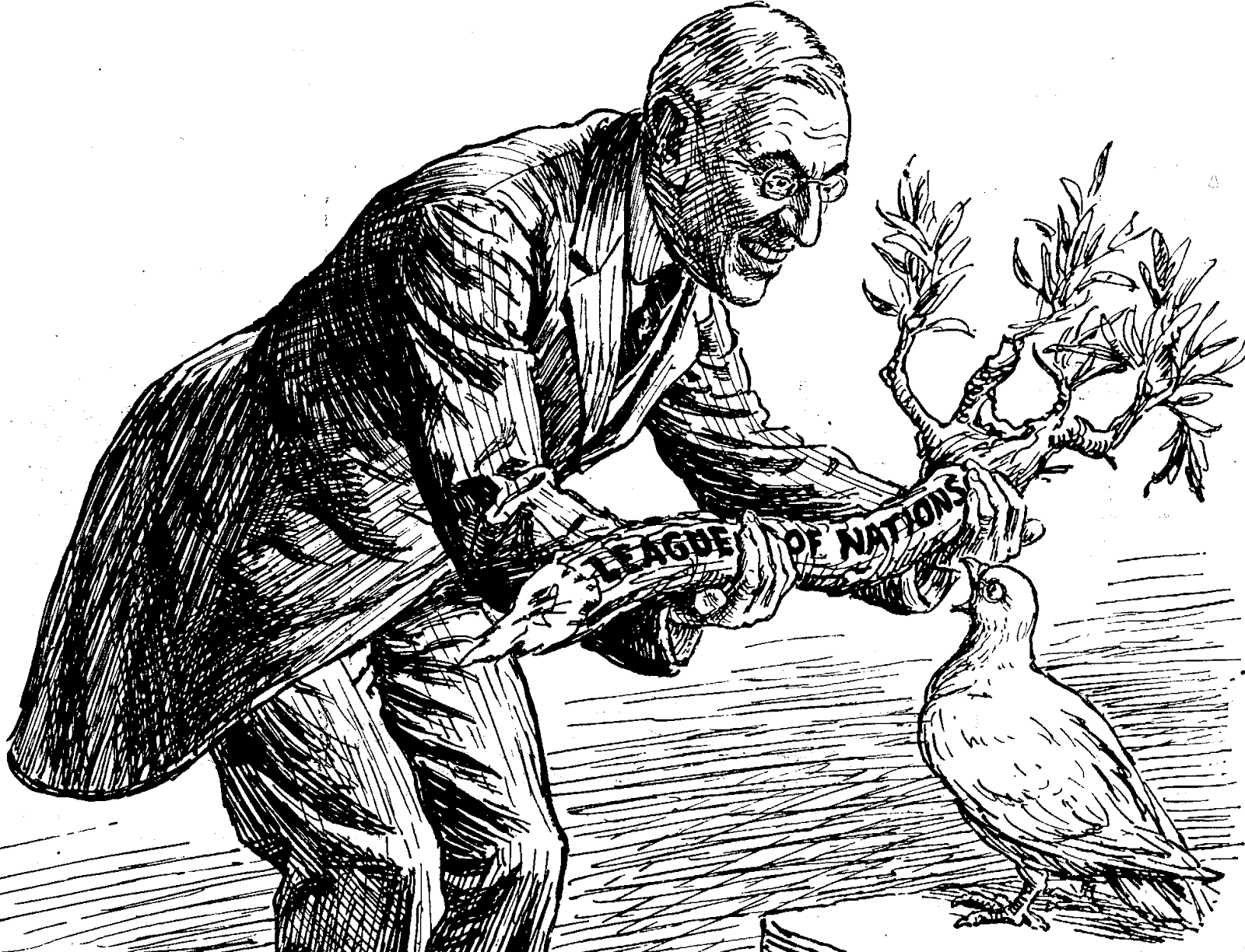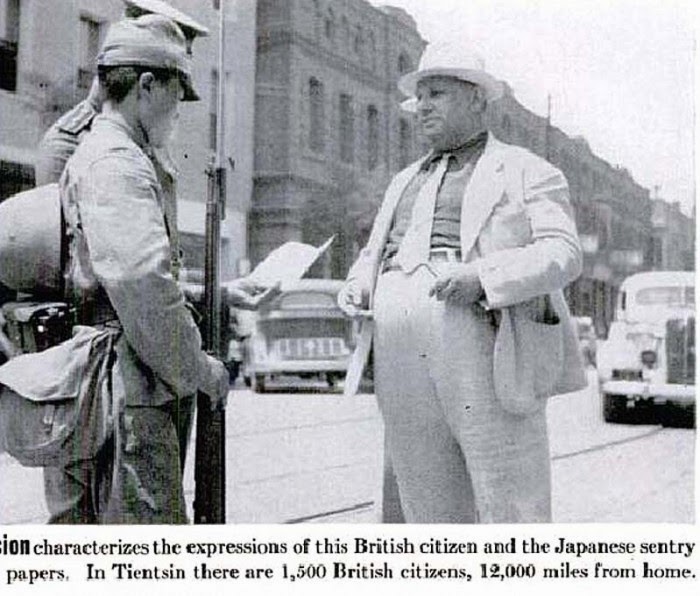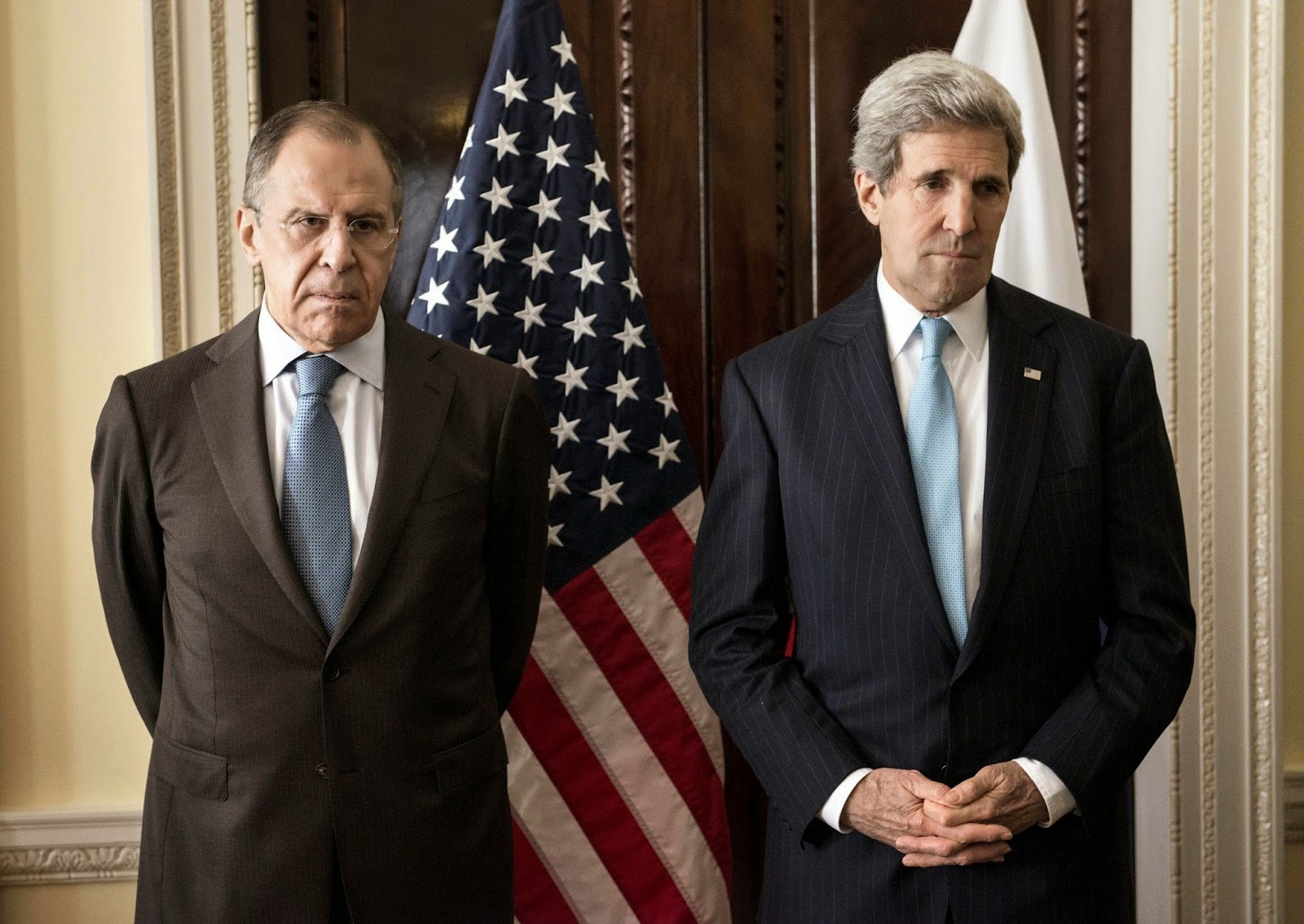The End of International Law
By Daniel Greenfield
SultanKnish.Blogspot.com
"There has been no greater advance than this,
gentlemen," the President of the United States said.
"It is a definite guaranty of peace. It is a
definite guaranty by word against aggression."

"If you look back upon the history of the world
you will see how helpless peoples have too often
been a prey to powers that had no conscience in the
matter... Now, the world, expressing its conscience
in law, says there is an end of that."
The year was 1919. The speaker was President Woodrow
Wilson and the tremendous advance in human history
that he was talking up was the League of Nations.
Thirteen years later, Japan seized Manchuria and
turned it into a puppet regime. China turned to the
League of Nations which ordered Japan to withdraw
from Manchuria. Japan instead withdrew from the
League of Nations.
The United States declared that it would not
recognize the new government. Japan replied that its
puppet regime was "the necessary act of the local
population". Five years later, Japan invaded China.
China asked for help from the League of Nations. The
League proved to be just as useless again.
Western sanctions against Japan were erratic.
Chamberlain vowed that Britain would never submit to
Japanese threats, but tacitly recognized Japan's
conquests. He called Japan's repeated humiliations,
"almost intolerable".
Almost.
Japan told Robert Craigie, the British ambassador
who urged appeasement and would go on to chair the
UN War Crimes Commission, to apologize for Britain's
opposition to the Japanese conquest and its
acceptance of all future Japanese conquests as a
pre-condition to further negotiations.
The UK had accepted the annexation of Austria and
abetted the seizure of the Sudetenland. Japanese
officials knew that behind British diplomacy lay not
strength, but fear of provoking the rising power of
the Rising Sun.
A few months before WWII, British negotiators had
finally convinced the Japanese to stop stripping
British subjects naked, but by then the forcible
stripping of British men and women had served its
purpose of stripping British power naked.
"We lived on bluff from 1920-1939, but it was
eventually called," Alexander Cadogan, the Permanent
Under-Secretary for Foreign Affairs, wrote.
Wilson's "definite guarantee of peace" had failed
miserably. International law had been exposed as
magical thinking. When confronted with aggression,
the diplomats who had talked boldly of ending war
crawled on their bellies and proposed territorial
partitions, desperately trying to appease Japan,
Germany and Italy.
The end of war really meant the beginning of a
self-righteous appeasement in which decadent states
besotted with their own moral high ground sacrificed
the weak to the strong in exchange for maintaining
the moral illusion of their peacemaking.
The rhetoric of the illusionists of peace hasn’t
changed. Diplomacy must be given time to work. The
invaded countries brought it on themselves. The
invaders have a legitimate territorial claim. Does
anyone really want to die for Manchuria, the
Sudetenland and Abyssinia? They didn't. Instead they
ended up having to die for Hawaii, London and Paris.
Debating whether Putin is following the Hitler
playbook displays a basic ignorance of history.
Japan followed that same playbook in its invasion of
Manchuria; a staged incident, a rapid invasion and a
puppet regime. It didn't originate that playbook.
It's probably as old as human history. Hitler's
invasion of Poland made it notorious in a world that
has managed to forget everything else that happened
around that time.
Secretary of State John Kerry mumbled that Putin
was guilty of 19th century behavior in the 21st
century, but it's actually Kerry who is guilty of
19th century behavior. President Woodrow Wilson had
lived through the Civil War. His father had owned
slaves. Lord Balfour's godfather was the Iron Duke
who had defeated Napoleon. Georges Clemenceau
narrowly avoided being locked up by Napoleon III.
The League of Nations was the successor to a 19th
century organization and the men who conceived it
and built it had largely been born in the 1850s and
60s. They weren't 20th century men building a better
world, but 19th century men inflicting ideas that
were already outdated on the modern world.
Their ideas didn't work then and they don't work
now.
The bewildered responses to Russia's invasion of
Ukraine are a naïve piece of theater that should
have been retired in the 19th century, but somehow
endures into the 21st as the lovers of peace insist
on guaranteeing an end to aggression based on
worthless pieces of paper that they have no
intention of defending by armed force and then act
surprised when their bluff is called and they
frantically scramble to convince their own people
that peace has been secured for our time.
Alexander Cadogan's blunt statement remains relevant
today. The Pax Americana is over. We have been
living on bluff and Putin called it.
Our response will be a variation on the Stimson
Doctrine in which we will refuse to recognize
Russia's puppet regime in Crimea, just as we refused
to recognize the Soviet annexations of Lithuania,
Estonia and Latvia. There will be endless debates
over whether the Ukrainians had it coming and praise
for our wise leaders who kept us out of war.
Eventually war may come anyway.
The peacemakers have never been known for their
honesty. When Woodrow Wilson tried to sell Americans
on the League of Nations, he did it with the Pueblo
Speech in which he accused opponents of the League
of being disloyal foreign traitors.
"Certain bodies of sympathy with foreign nations
that are organized against this great document,"
Wilson claimed, the great peacemaker sounding like
the cheap jingoistic agitator with KKK sympathies
that he really was. "Any man who carries a hyphen
about with him carries a dagger that he is ready to
plunge into the vitals of this Republic whenever he
gets ready."
This vast hyphenated dagger conspiracy was directed
at preventing Wilson from dragging the country into
an international organization that would undermine
national sovereignty
Switching back to imaginary progressivism, Wilson
claimed that the League would work because countries
would be embarrassed to invade other countries for
fear of being frowned on by their neighbors.
"He will be afraid of the eyes of his neighbors. He
will be afraid of their judgment of his character.
He will know that his cause is lost unless he can
sustain it by the arguments of right and of
justice. The same law that applies to individuals
applies to nations."
But foreign leaders are not part of a community of
one street, instead they answer to the cultural
pressures of their own societies and nations.
Wilson’s expectations of decent behavior meant
nothing in Berlin, Rome or Tokyo. They still mean
nothing in Beijing, Moscow or Tehran.
Wilson assured everyone that China would be taken
care of. "I am proud to have taken part in an
arrangement which promises the protection of the
world to the rights of China."
The League of Nations proved unable to protect
China's rights. Only China was eventually able to do
that.
International law did not protect any of the weaker
nations of the world. Strong alliances did. There is
no world government of the moral high ground that
can substitute for alliances built on strength.
International law does not stop invasions. Armed
force does.
Ukraine is a reminder of the folly of putting our
faith in 19th century illusions that have been
discredited more times than spirit-rapping or
phrenology. The only law that matters is the law of
strength. The only agreements that matter are those
that are kept, either through genuine friendship
rooted in a shared cultural history, or the threat
of force.
The illusion of international law is pervasive. It
tells us that the world does not have to work the
way that it really does if only we hold hands, think
good thoughts and pledge to wage war no more. Its
advocates pretend to be sober and sensible, but they
might as well be the counterculture hippies trying
to levitate the Pentagon.

There is no exit strategy from reality. The moral
high ground is no substitute for battleships and
peace doesn't come from pieces of paper, but from
weapons and men willing to use them.
The United States did China no favors by holding out
the promise of a collective security based on a
common decency that had no defense against its
violation except a scandalized harrumph and we have
done Ukraine no favors by offering it useless pieces
of paper while encouraging its disarmament.
"These men were crusaders. They were not going forth
to prove the might of the United States. They were
going forth to prove the might of justice and
right," Woodrow Wilson said of the dead Doughboys of
WWI, but the two are indivisible.
Wilson did not live long enough to discover that
without the might of the United States, justice and
right were easily overpowered by tyranny and evil.
American might allowed the advocates of
international law to live in an imaginary world in
which their doctrines and documents actually matter.
And now that they have finally succeeded in tearing
down American strength and ushering in a
post-American world, their own world will end.
International law is a Potemkin village. A hollow
facade upheld by the might of the United States. A
post-American world means the end of international
law.


